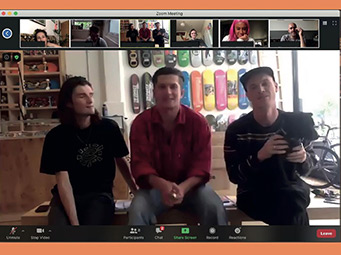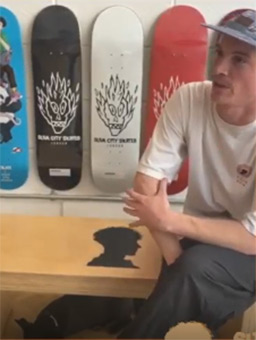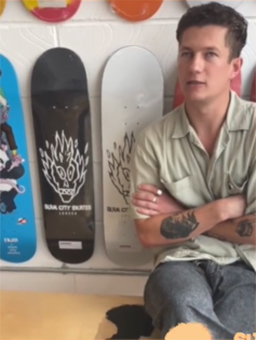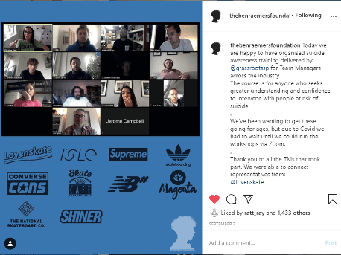Ben Raemers was a skateboarder – a really good one
His passion for life and skating was contagious, matched only by his skill. At 13, he petitioned his local council to build a skatepark. At 18, he was competing professionally and grabbing attention from the biggest skate brands in the world. At 25, he won ‘King of the Road’, one of the toughest skatebording comps in America.
At 28, Ben died by suicide. His death shocked and devastated those left behind – friends, family, the skating world.
Lucy Raemers, Ben’s sister, reflected on his death. She had struggled to talk to Ben about his wellbeing.
“I was scared to ask Ben, ‘Are you feeling suicidal?’ I didn’t want to upset him or embarrass him. I regret with all my heart not asking him more.”

She worried that skaters were not talking about mental health or suicide. Skaters spent so much time together and became a family. But stigma and misunderstanding prevented them from talking openly about their mental health.
So, she decided to do something about it. Along with three others, she set up The Ben Raemers Foundation – their mission, to end the stigma around mental health and suicide and raise awareness within the skateboarding community.
Grassroots worked with The Ben Raemers Foundation to deliver two Suicide First Aid courses: the first for Slam City Skates – one of London’s biggest skate shops and teams; the second for skate team managers around the UK.
We taught them how to:
- Understand the causes and risk factors of suicide
- Spot the signs that someone is in crisis
- Ask directly about suicide, “I care for you – are you thinking about suicide?”
- Listen to their answer
- Connect them with a network of lifesaving support
They arrived as skaters, and left as potential lifesavers
Training participants included pro skaters, shop assistants, team management, and photographers – each learnt lifesaving lessons they could use immediately. Here’s what they had to say.

Ryan Gray, team manager of The National Skateboard Co, said, “I found myself thinking back to times in the past when having Suicide First Aid skills would have been extremely useful. The most important thing is that we’ve all got that information now moving forwards. We’re better equipped to look out for the people that we work with. I don’t think you can overstate how important that is.”

Harry from Slam City Skates shop said, “Skate shop owners and workers all do a lot of listening, so it’s important we’re able to recognise the signs of something like that is someone is in need. If we can play a part in putting them in the right direction, where they need to go, then that’s job done.”

Mikey, Slam City Skates shop assistant, said, “Going into it I was quite nervous. But I’m taking away that it’s okay to talk about suicide. It’s not a really heavy word. It’s better to talk about it, so you can do something about it.”
Grassroots helped skaters keep themselves and others safe from suicide

It could be someone skating in the same park, buying a new board, or making a film – we helped our training participants become ready to recognise and support those in crisis. With the right information and skills, anyone can save lives.
Lucy Raemers says it best: “Don’t be afraid of the word, suicide. No one ever got hurt by asking “are you ok?”. Say it, ask it.”
If you are thinking about suicide or worried about someone, consider our StayAlive app or visit our Find Help Now section.
Visit The Ben Raemers Foundation.
Click here for our online course SFA: Suicide First Aid.